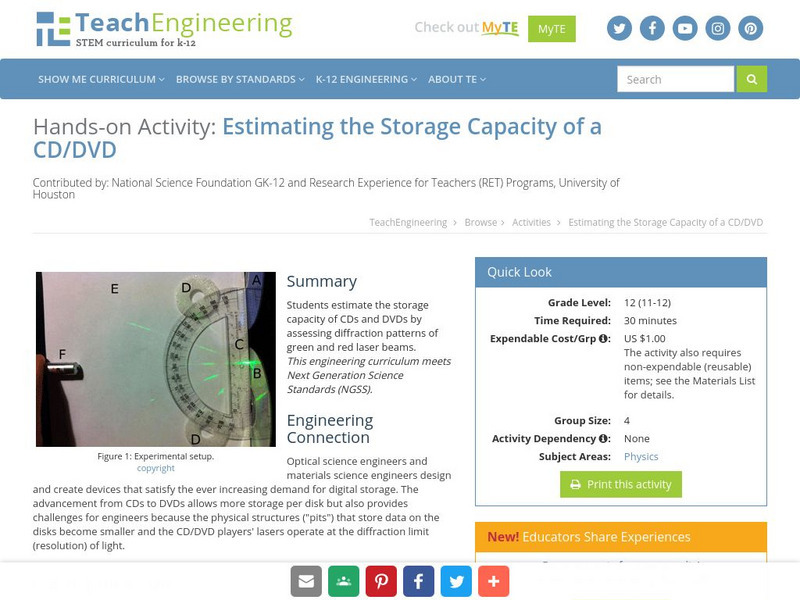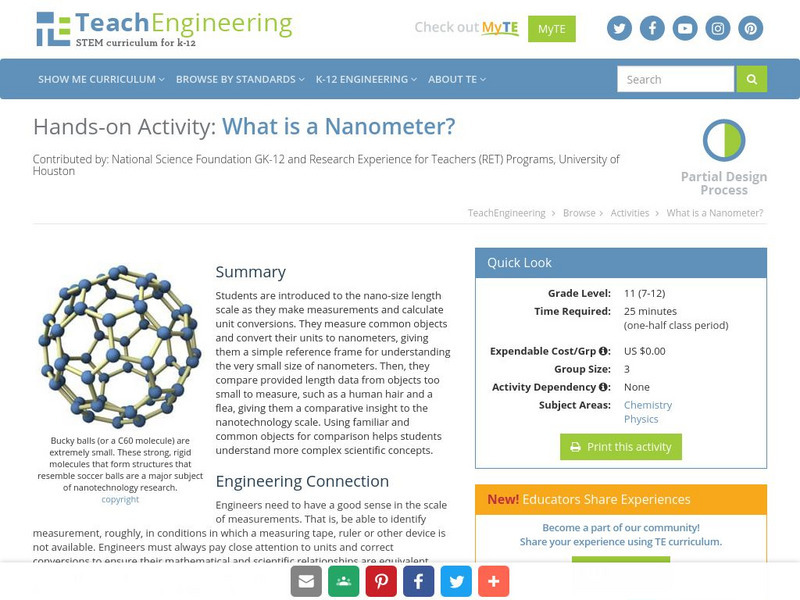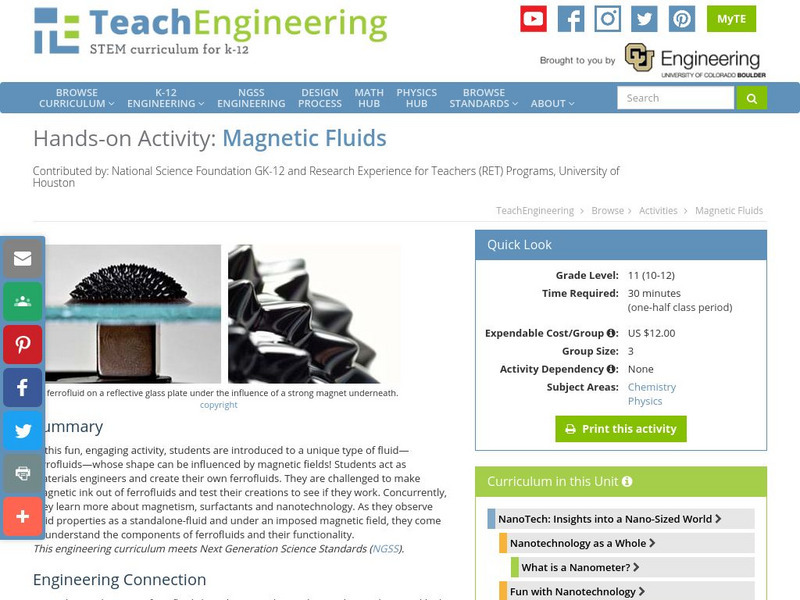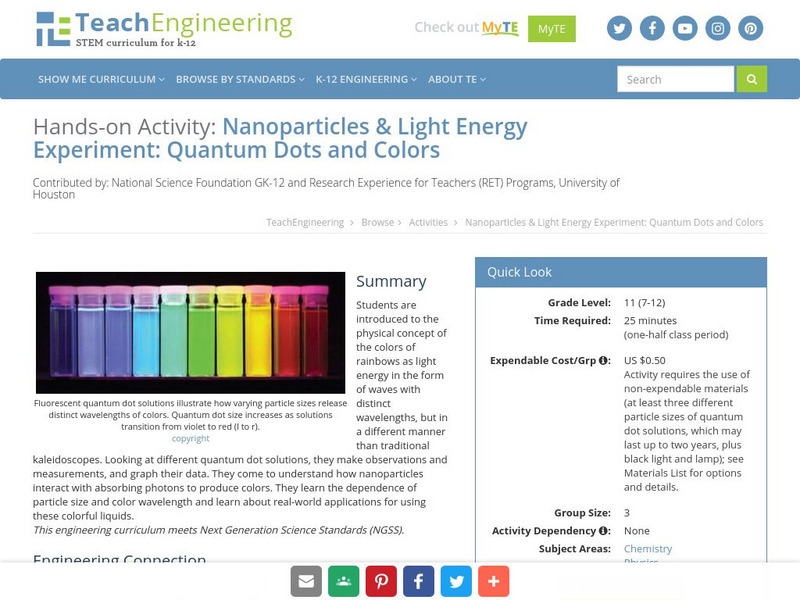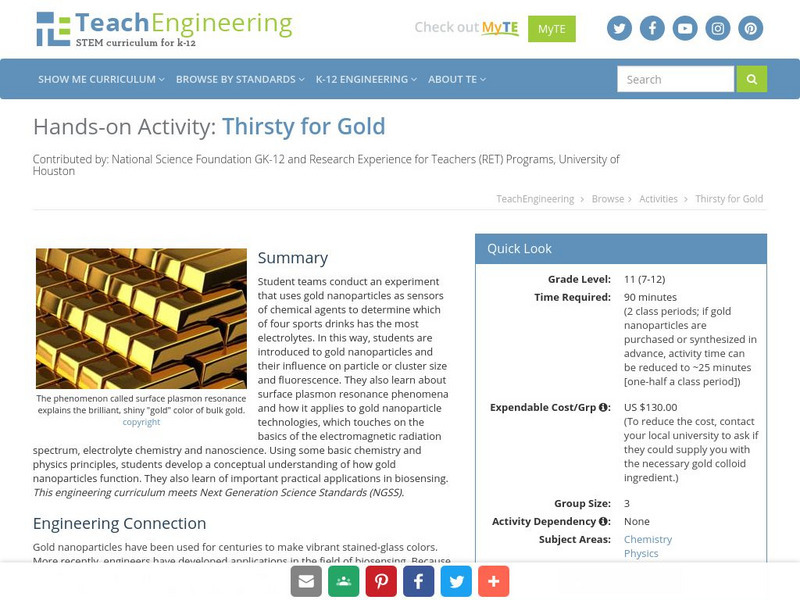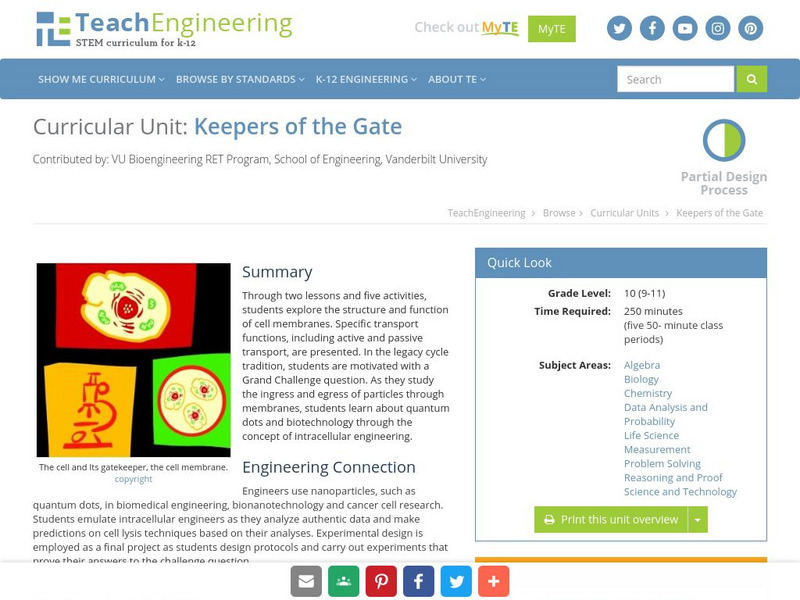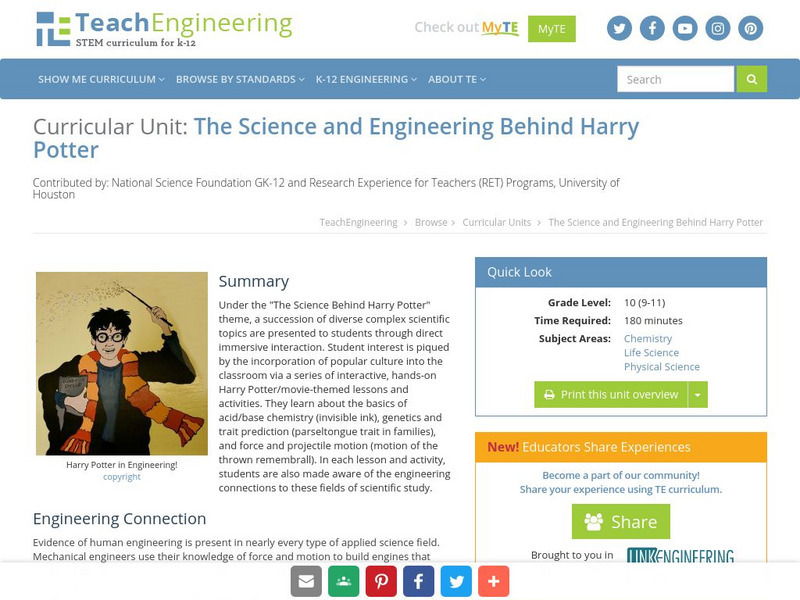Concord Consortium
Concord Consortium: Molecular Workbench Showcase: Nanotechnology
A collection of simulations on nano materials, nano applications, and machinery at the nano level. Students can learn about carbon nanotubes, material strength, a conveyor belt made on the nanoscale, and sputttering.
Concord Consortium
Concord Consortium: Molecular Workbench
Numerous molecular biology interactive activities along with a program that can automatically keep models and reports to keep track of progress.
Biotechnology Institute
Biotechnology Institute: Your World: Nanobiotechnology [Pdf]
Students can read this full-length download of the biotech magazine which discusses nanotechnology and bionanotechnology issues.
American Institute of Biological Sciences
Action Bioscience: Nanotechnology: It's a Small, Small, Small World
Discover the potential that nanotechnology has for manufacturing. Find out how nanotechnology may affect medicine and even the military.
University of Wisconsin
University of Wisconsin: Exploring the Nanoworld: Teaching Modules
A collection of lesson plans and student handouts on teaching students about the "nanoworld."
Other
Nanozone: Ask Nanobrain (Ten Questions and Answers About Nanotechology)
Nanobrain answers ten fundamental questions about nanotechnology with words, pictures, and animation.
Other
Nanozone: Virus Worker (An Innovative Use of Nanotechnology)
Learn about an innovative use of nanotechnology involving viruses that manufacture a special kind of wire.
Other
Try Nano
An extensive resource of illustrated articles and explanations of all things nano, with many useful extras for high-school students of nanoscience (glossary, image gallery, profiles of nanoscientists, and links to university programs in...
National Geographic
National Geographic: Properties of Matter: Macro to Nano Scale
In this lesson, students learn how properties of matter for common materials may change when examined at the nanoscale level. Includes student handouts, video resources, and a glossary.
Other
Cornell Nano Scale Science and Technology Facility: Nannooze
Students explore the world of science and technology through reading articles, blog postings, and interviews with scientists.
TeachEngineering
Teach Engineering: Estimating the Storage Capacity of a Cd/dvd
Students estimate the storage capacity of CDs and DVDs by assessing diffraction patterns of green and red laser beams.
TeachEngineering
Teach Engineering: Magic Magnetic Fluid
Students are introduced to a unique fluid--ferrofluids--the shape of which can be influenced by magnetic fields. This activity supplements traditional magnetism activities and offers comparisons between large-scale materials and...
TeachEngineering
Teach Engineering: What Is a Nanometer?
Students are introduced to the nano-size length scale as they make measurements and calculate unit conversions. They measure common objects and convert their units to nanometers, giving them a simple reference frame for understanding the...
TeachEngineering
Teach Engineering: Magnetic Fluids
In this fun, engaging activity, students are introduced to a unique type of fluid--ferrofluids--whose shape can be influenced by magnetic fields! Students act as materials engineers and create their own ferrofluids. They are challenged...
TeachEngineering
Teach Engineering: Quantum Dots and Colors
Students are introduced to the physical concept of the colors of rainbows as light energy in the form of waves with distinct wavelengths, but in a different manner than traditional kaleidoscopes. Looking at different quantum dot...
TeachEngineering
Teach Engineering: Thirsty for Gold
Student teams conduct an experiment that uses gold nanoparticles as sensors of chemical agents to determine which of four sports drinks has the most electrolytes. In this way, students are introduced to gold nanoparticles and their...
TeachEngineering
Teach Engineering: Quantum Dots and the Harkess Method
Students explore the applications of quantum dots by researching a journal article and answering framing questions used in a classwide discussion. This "Harkness-method" discussion helps students become critical readers of scientific...
TeachEngineering
Teach Engineering: Nano Tech: Insights Into a Nano Sized World
Through two lessons and four activities, students learn about nanotechnology, its extreme smallness, and its vast and growing applications in our world. Embedded within the unit is a broader introduction to the field of material science...
TeachEngineering
Teach Engineering: Keepers of the Gate
Through two lessons and five activities, students explore the structure and function of cell membranes. Specific transport functions, including active and passive transport, are presented. In the legacy cycle tradition, students are...
TeachEngineering
Teach Engineering: Nanotechnology as a Whole
Students are given a general overview of nanotechnology principles and applications, as well as nanomaterials engineering. Beginning with an introductory presentation, they learn about the nano-scale concept and a framework for the...
TeachEngineering
Teach Engineering: Fun With Nanotechnology
Through three teacher-led demonstrations, students are shown samplers of real-world nanotechnology applications involving ferrofluids, quantum dots and gold nanoparticles. This nanomaterials engineering lesson introduces practical...
TeachEngineering
Teach Engineering: The Keepers of the Gate Challenge
Students are presented with a real-life problem as a challenge to investigate, research and solve. Specifically, they are asked to investigate why salt water helps a sore throat, and how engineers apply this understanding to solve other...
Other
Nano Hub: Simulation, Education, and Community for Nanotechnology
A resource bank of animations, courses, software downloads, teaching materials, publications and workshops about nanoscience technology. Resources are searchable and users can save their materials by registering for free.
TeachEngineering
Teach Engineering: Engineering Out of Harry Situations
Under the "The Science Behind Harry Potter" theme, a succession of diverse complex scientific topics are presented to students through direct immersive interaction. Student interest is piqued by the incorporation of popular culture into...










